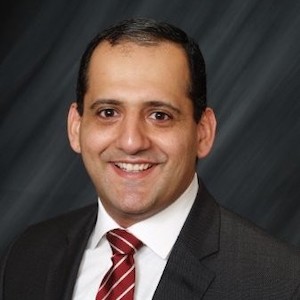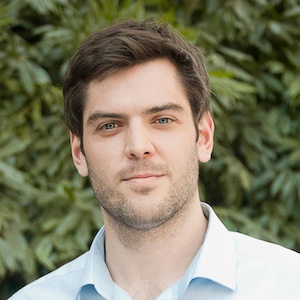Public lecture by Professor Amro Farid: Ducks on water

Room G18, Alan Gilbert Building
161 Barry St, Carlton VIC 3053
ABOUT
The Melbourne Energy Institute hosted a public lecture by Professor Amro Farid, titled Ducks on Water: Lessons Learned from New England's System Operational Analysis and Renewable Energy Integration Studies. Discussion was moderated by Dr Sebastian Püschel, an Academic Specialist in Future Grids and Markets at the University of Melbourne.
The introduction of variable energy resources (VERs) like solar and wind call for fundamental changes to the dynamic operation of the power grid. There are several drivers: decarbonisation, growing electricity demand, the deregulation of electricity markets, active end-user participation, and digital innovations in energy technologies all play a role. Furthermore, VER forecasts are uncertain and their profiles are intermittent, and so require greater quantities of operating reserves. Fast-ramping natural gas and hydro-electric power plants take on a prominent grid-balancing role.
At even higher levels of solar PV and wind generation, grid flexibility saturates and VER curtailment becomes the only remaining option for reliable grid-balancing. To avoid this undesirable future, demand-side resources become a necessary path for energy system development. These resources are not just energy artefacts, but also exist within other engineering systems. Consequently, their integration gives rise to new multi-disciplinary challenges, such as the energy-water nexus.
In this presentation, Professor Amro Farid sought to share lessons learned from two system operational analysis and renewable energy integration studies conducted in cooperation with ISO New England. In the first, VER resources are increased in the coming decade to reveal a future of grid saturation and VER curtailment. The follow-on New England Energy-Water Nexus Study shows that coordinated energy-water resources can create a triple bottom-line synergy worth $70 million a year. The presentation makes the case that a decarbonisation agenda must evolve from power grid studies with electricity as a single energy carrier to multi-energy engineering systems studies that specifically coordinate multiple energy carriers through many layers of coordinated planning and operations management decisions.
Date: Thursday 3 November 2022
Time: 3:00 pm - 4:00 pm
Venue: Room G18, Alan Gilbert Building, 161 Barry St, Carlton VIC 3053
RECORDING & SLIDES
SPEAKER

Professor Amro Farid
- Alexander Crombie Humphreys Chair Professor in Economics of Engineering, School of Systems and Enterprises, Stevens Institute of Technology
- Visiting Professor, MIT Mechanical Engineering
- Director, Laboratory for Intelligent Integrated Networks of Engineering Systems (LIINES)
Professor Amro M. Farid is the Alexander Crombie Humphreys Chair Professor in Economics of Engineering at the School of Systems and Enterprises at the Stevens Institute of Technology and a visiting professor at MIT Mechanical Engineering. He leads the Laboratory for Intelligent Integrated Networks of Engineering Systems (LIINES) and has authored over 150 peer reviewed publications in Smart Power Grids; Energy-Water Nexus; Electrified Transportation; Industrial Energy Management; and Interdependent Smart City Infrastructures.
He received his Bachelor of Science. in 2000 and his Master of Science in 2002 from the MIT Mechanical Engineering Department. He went on to complete a PhD at the Institute for Manufacturing within the University of Cambridge (UK) Engineering Department in 2007. He has varied industrial experience in the electric power, automotive, semiconductor, defence, chemical, and manufacturing sectors.
As an Environment and Greenhouse Gases Specialist, he designed and implemented Air Liquide's Worldwide Environmental Management System, and was the lead technical advocate for Air Liquide's position on the EU Emissions Trading Scheme. In 2010, he began his academic career as a visiting scholar at the MIT Technology Development Program and the Masdar Institute of Science and Technology (UAE). In 2014, he founded Engineering Systems Analytics LLC as a startup engineering software and consulting company to provide techno-economic insight to energy and infrastructure operators. In 2021, he became a Fulbright Future Scholar to investigate the energy-water-hydrogen nexus in Australia.
As an academic, he has made active contributions to the MIT-Masdar Institute Collaborative Initiative, the MIT Future of the Electricity Grid Study, the IEEE Vision for Smart Grid Controls, and the Council of Engineering Systems Universities. He currently serves as Chair of IEEE Smart Cities R&D Technical Activities Committee, and Co-Chair of the IEEE Systems, Man & Cybernetics (SMC) Technical Committee on Intelligent Industrial Systems. He is a senior member of the IEEE and a member of the ASME and INCOSE.
MODERATOR

Dr Sebastian Püschel
Academic Specialist, Future Grids and Markets
University of Melbourne
Sebastian Püschel is a power system engineer who earned his PhD at the University of Melbourne in 2021. He currently works as an Academic Specialist at the University of Melbourne, aiming to strengthen and increase engagement with industry through applied research on power system operation and planning. In the past 10 years, Sebastian has worked on over 40 projects with industry partners in Chile, Australia and the UK, aiming to support decision-making in investment and long-term operation of power systems in transition.